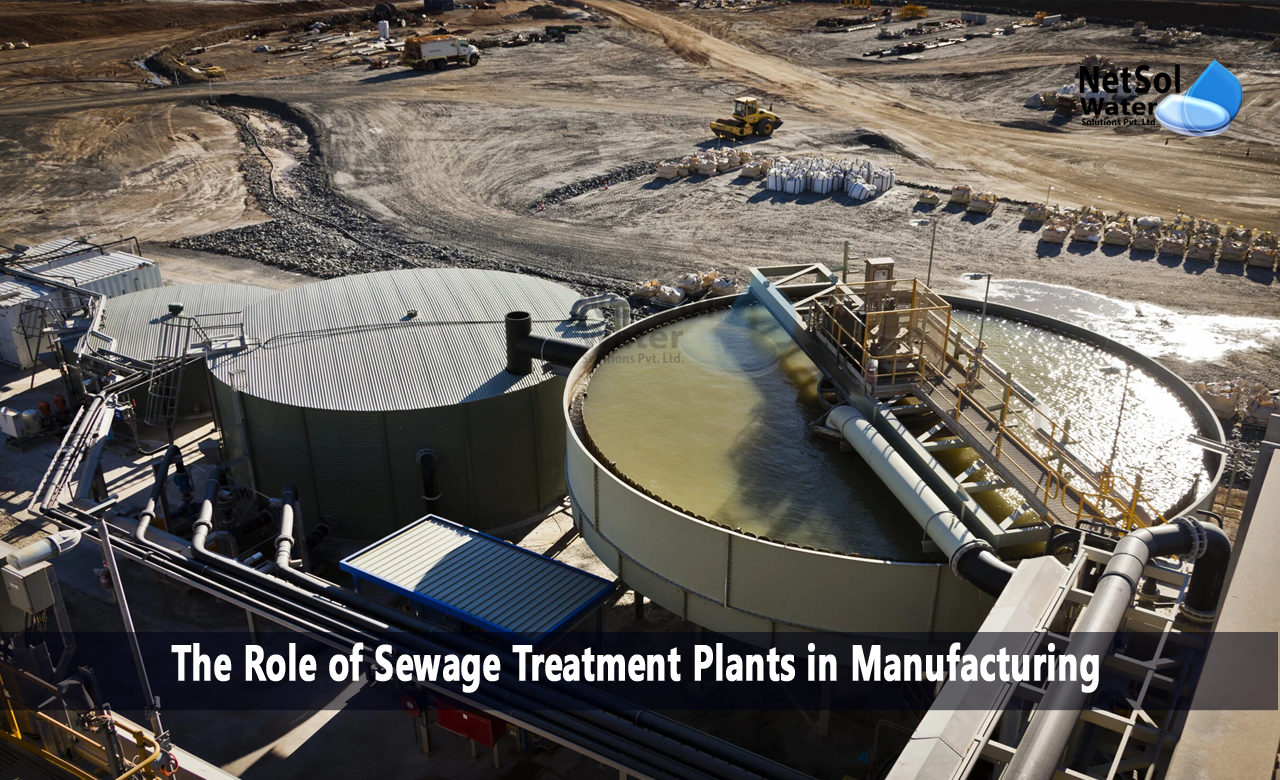What is the Role of Sewage Treatment Plants in Manufacturing?
As sustainability becomes a top priority for businesses worldwide, the focus on creating sustainable supply chains is gaining momentum. Manufacturers play a pivotal role in driving sustainability throughout the supply chain, and one essential component of this effort is the integration of sewage treatment plants. These plants serve as catalysts for sustainable practices by managing wastewater effectively and minimizing environmental impact.
In this blog post, we will explore the crucial role of sewage treatment plants in manufacturing and their contribution to building sustainable supply chains.
1- Environmental Impact Reduction:
Manufacturing processes often generate substantial amounts of wastewater containing pollutants and contaminants that can harm the environment. Sewage treatment plants play a vital role in reducing this impact by treating wastewater to remove pollutants and ensure its compliance with regulatory standards. By implementing these treatment facilities, manufacturers actively prevent the release of untreated or inadequately treated wastewater into natural water bodies. This reduces pollution, preserves water quality, and protects ecosystems, contributing to a more sustainable supply chain.
2- Water Conse?rvation and Resource Efficiency:
Water scarcity is a global concern, and sustainable supply chains must prioritize water conservation. Sewage treatment plants enable manufacturers to treat and recycle wastewater, reducing their dependence on freshwater sources. Treated water can be reused within the manufacturing process, reducing the need for additional water procurement. By embracing sewage treatment plants, manufacturers conserve water resources, minimize water-related risks, and enhance the overall efficiency of their supply chains.
3- Compliance with Regulations:
Responsible manufacturing requires compliance with environmental regulations governing wastewater treatment and discharge. Sewage treatment plants help manufacturers meet these regulations by effectively treating wastewater and ensuring it meets the required quality standards before being discharged. Compliance not only mitigates legal risks and penalties but also enhances corporate reputation and stakeholder trust. By integrating sewage treatment plants, manufacturers demonstrate their commitment to responsible environmental practices and contribute to building sustainable supply chains.
4- Collabo?ration with Suppliers:
Sustainable supply chains rely on collaboration and engagement with suppliers. Manufacturers can encourage and support their suppliers in implementing sewage treatment plants to manage wastewater effectively. By providing guidance, sharing best practices, and fostering partnerships, manufacturers can extend their sustainability efforts throughout the entire supply chain. Collaboration with suppliers in implementing sewage treatment plants promotes environmental awareness and responsibility, creating a network of environmentally conscious partners.
5- Value Chain Transparency and Consumer Demands:
Modern consumers are increasingly conscious of the environmental and social impacts of the products they purchase. They demand transparency and sustainability throughout the value chain. Manufacturers that integrate sewage treatment plants can enhance value chain transparency by showcasing their commitment to responsible environmental practices. By communicating the implementation of these plants, manufacturers can align their supply chains with consumer demands for sustainable products, gaining a competitive advantage in the market.
6- Long-Term Cost Savings:
While the primary focus of sewage treatment plants is environmental sustainability, they also contribute to long-term cost savings for manufacturers. By recycling and reusing treated water, manufacturers reduce their reliance on freshwater sources, leading to lower water procurement costs. Additionally, implementing sewage treatment plants can minimize wastewater disposal fees and potential fines for non-compliance with environmental regulations. These cost savings contribute to the financial viability of the manufacturing process and support the development of sustainable supply chains.
Conclusion:
Sewage treatment plants play a crucial role in driving sustainable supply chains within the manufacturing sector. By effectively managing wastewater, these plants help reduce environmental impact, conserve water resources, ensure regulatory compliance, and enhance value chain transparency. The integration of sewage treatment plants promotes collaboration with suppliers, satisfies consumer demands for sustainable products, and brings long-term cost savings. As manufacturers continue to prioritize sustainability, sewage treatment plants emerge as essential tools in building resilient and environmentally responsible supply chains that contribute to a more sustainable future.
Netsol Water is Greater Noida-based leading water & wastewater treatment plant manufacturer. We are industry's most demanding company based on client review and work quality. We are known as best commercial RO plant manufacturers, industrial RO plant manufacturer, sewage treatment plant manufacturer, Water Softener Plant Manufacturers and effluent treatment plant manufacturers. Apart from this 24x7 customer support is our USP. Call on +91-9650608473, or write us at enquiry@netsolwater.com for any support, inquiry or product-purchase related query.



